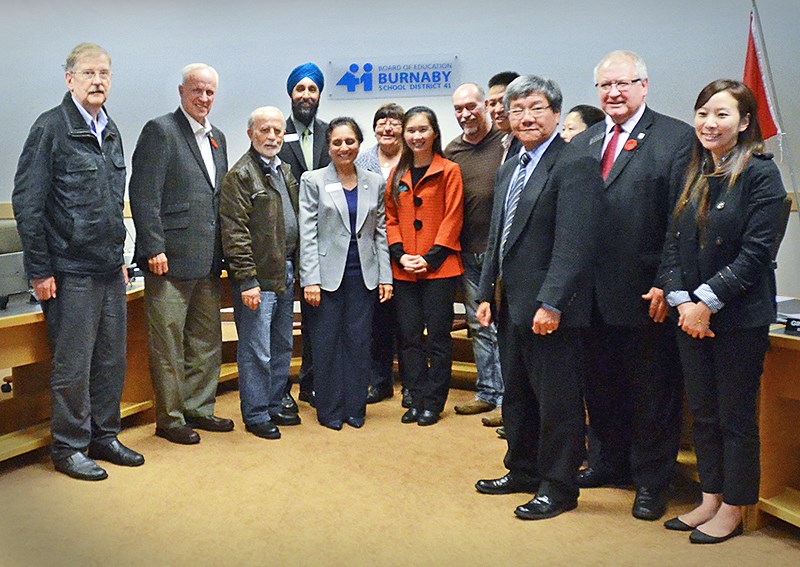A plan announced by city council and the school board during the 2014 municipal election to triple daycare spaces in Burnaby has yet to produce a completed feasibility study, and child-care advocates are not impressed.
“Child care needs to be a priority, both for the municipality and the school district because it’s a crisis for families,” Coalition of Child Care Advocates of B.C. spokesperson Sharon Gregson told the NOW. “It’s been more than a year now, and you would hope there would be more than a feasibility study.”
The plan – a partnership between the city and the school district – was to see the creation of up to 12 new child-care facilities and 500 new child-care spaces, starting in 2015.
The school district was to supply the land and the city was to pay for the placement of modular buildings to house the daycares.
Trustees and councillors – all Burnaby Citizens Association candidates in the election campaign – met at both city hall and the school board office for public announcements.
Coun. Colleen Jordan was quoted by one media outlet saying there were “huge” waiting lists for all the city’s daycares and that the city had density bonus money from developers for the project.
“We want to get this in place and get it going,” she told 24hrs in October 2014.
But an $80,000 feasibility study approved in February 2015 is “still ongoing,” according to city planning and building director Lou Pelletier.
And even when that review is complete, the city and school board will still have to craft a separate agreement for each individual site.
The plan has been delayed, according to Mayor Derek Corrigan, because the agreement announced at the height of the election campaign turned out to be a lot more complicated than councillors and trustees anticipated.
“It’s not overwhelming,” Corrigan said, “but it’s more complicated than we thought it was.”
Regulations around different kinds of child care (babies, toddlers and after-school care), differences in priorities between the district and the city (the district is pushing for after-school care while the city’s focus is toddler daycare), and the feasibility of the sites recommended by the district are among the challenges that have come to light since the agreement was signed, according to Corrigan.
The facilities are likely also going to be more expensive than first anticipated, he said.
Despite owning five child-care facilities, the city doesn’t actually have much experience building daycares, Corrigan said, because the city has generally contracted developers to build them as part of their developments and then turn them over to the city.
He said the city and district forged their agreement as a faster and less expensive way to meet the city’s child-care needs.
“I know that, most certainly, the kind of structures that we’re looking at are much easier and quicker to build than waiting for development and trying to encompass it in development,” he said.
The mayor didn’t have a new timeline for when parents could expect shovels to be in the ground on the first project, but he took exception to Gregson’s criticism that more should have been done by now.
“I think Ms. Gregson is well aware that daycare is not the responsibility of either the school boards or local government and that we’re taking this on to try to help these families who do need daycare in our community,” he said. “I don’t think that it’s helpful to be criticizing the organizations that are stepping beyond their duties to try to assist.”
Gregson said she had no wish to get into a “war of words” with Burnaby’s mayor and agreed municipalities have no hope of solving the child-care crisis without a provincial plan and federal dollars, but she added some municipal councils, like Vancouver’s, set specific targets around increasing childcare spaces each term.
Burnaby’s current mayor and council have no such term targets.
“When we have a mayor and council and school board like we do in Burnaby, who we know conceptually are very supportive of child care and don’t have the resources to do everything, we want to be encouraging while still holding them accountable,” Gregson said.
“Knowing that the mayor and council, in the election and now still, see childcare as a priority, we look forward to timelines and benchmarks that will actually get spaces into the hands of families.”



